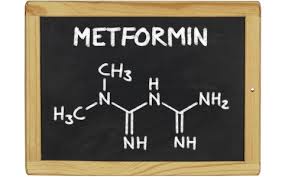- Home
- Editorial
- News
- Practice Guidelines
- Anesthesiology Guidelines
- Cancer Guidelines
- Cardiac Sciences Guidelines
- Critical Care Guidelines
- Dentistry Guidelines
- Dermatology Guidelines
- Diabetes and Endo Guidelines
- Diagnostics Guidelines
- ENT Guidelines
- Featured Practice Guidelines
- Gastroenterology Guidelines
- Geriatrics Guidelines
- Medicine Guidelines
- Nephrology Guidelines
- Neurosciences Guidelines
- Obs and Gynae Guidelines
- Ophthalmology Guidelines
- Orthopaedics Guidelines
- Paediatrics Guidelines
- Psychiatry Guidelines
- Pulmonology Guidelines
- Radiology Guidelines
- Surgery Guidelines
- Urology Guidelines
Study unravels secret behind beneficial role of Metformin in ageing

Metformin is one of the most widely used medications in the world. In addition to its effects on lowering blood sugar in Type 2 diabetes, it has shown benefits on ageing and a number of diverse diseases such as cognitive disorders, cancer and cardiovascular disease in preclinical models.
One question researchers have been asking is how this is being achieved. Researchers at McMaster University have unlocked one of the secrets behind the many benefits of metformin.
A multi-year study led by a collaboration of McMaster's basic science and clinical researchers has found that metformin induces the expression and secretion of a protein called growth differentiating factor 15, or GDF15. The results have been published in Nature Metabolism.
Please also read-Metformin may help improve symptoms of Metabolic syndrome, finds study
"Studies over the past two decades have shown that metformin does more than lower glucose, but we haven't understood why," said Gregory Steinberg, senior author and professor of medicine at McMaster. He is also co-director of the Centre for Metabolism, Obesity and Diabetes Research at McMaster.
"We went into this study with the idea that metformin might communicate with other tissues in the body by causing the secretion of a protein from the liver. We were totally surprised when we found out that metformin caused the secretion of GDF15, a protein that is known to suppress appetite."
Please also read-Not just blood sugar control, Metformin may extend healthy aging: Study
The study team took that knowledge and applied it to mice to better understand the science behind the outcome. Scientists deleted the gene that makes GDF15 in mice, then treated them with metformin. The results showed that mice without GDF15 did not eat less or lose weight, despite being administered metformin, establishing GDF15 as the connection between metformin and weight loss.
The researchers say the findings open a number of avenues of research. There are currently over 1,500 registered clinical trials to test the effects of metformin in ageing and different diseases.
"The possibility that GDF15 has a role in multiple beneficial effects of metformin treatment on ageing or diseases like cancer needs to be studied," Steinberg said.
Journal-Nature Metabolism
For more details click on the link: DOI: 10.1038/s42255-019-0146-4

Disclaimer: This site is primarily intended for healthcare professionals. Any content/information on this website does not replace the advice of medical and/or health professionals and should not be construed as medical/diagnostic advice/endorsement or prescription. Use of this site is subject to our terms of use, privacy policy, advertisement policy. © 2020 Minerva Medical Treatment Pvt Ltd